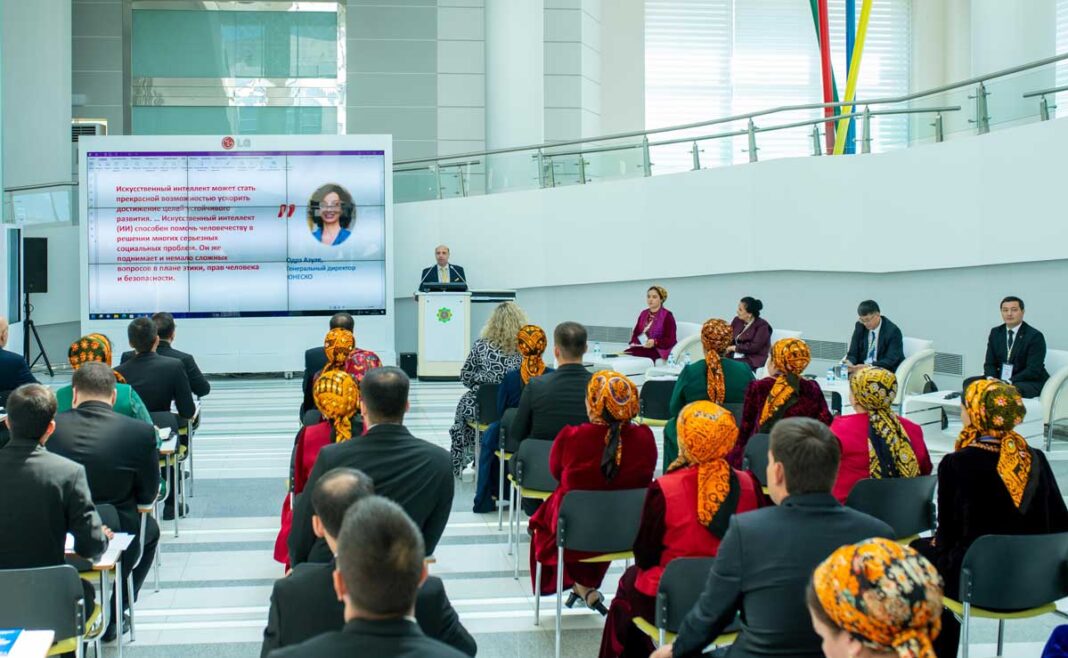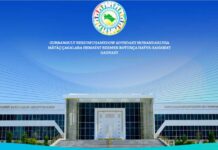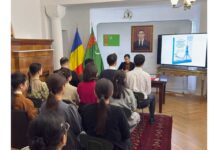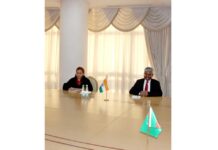Today, the Yagshigeldi Kakaev International Oil and Gas University, in collaboration with the Ministry of Education of Turkmenistan and the UNESCO Institute for Information Technologies in Education, hosted an international scientific and practical conference titled “The importance of the potential of artificial intelligence in achieving sustainable development goals.” The conference was held in accordance with the United Nations General Assembly’s declaration of 2025 as the “Year of International Peace and Confidence,” an initiative of Turkmenistan. It also aligned with the “Plan for the Implementation of the Concept of the Development of the Digital Education System in Turkmenistan,” approved by a Resolution of the President of Turkmenistan, and the “Plan of Events in the Education System in Honor of the 30th Anniversary of Turkmenistan’s Permanent Neutrality.”
The primary goal of the conference was to integrate artificial intelligence into national and international educational platforms and to facilitate the exchange of best practices in this field. Representatives attended the international scientific and practical conference from UNESCO, international experts, employees of the Ministry of Education of Turkmenistan, and scholars and teachers from higher education institutions. The speakers discussed measures to digitize education and provide technological systems. It was also noted that it is necessary to encourage the development of international cooperation and capacity-building for national research laboratories and centers. In this regard, the importance of developing appropriate standards and mechanisms at the national and regional levels was emphasized to support the implementation of responsible and inclusive artificial intelligence systems in Central Asian countries and to assess the impact of these systems in creating new opportunities for sustainable development in the region.
The conference participants considered the issues of developing educational and training programs, expanding access to open artificial intelligence models and systems, and utilizing educational data and computational resources. They also discussed how to facilitate the development of artificial intelligence models and encourage the participation of micro, small, and medium-sized enterprises in the digital economy. In addition, the ethical aspects of using artificial intelligence and issues related to innovative educational technologies were discussed.
Following the plenary session, the conference continued in sections. The first session, “The Place of Artificial Intelligence in Providing Inclusive and High-Quality Education,” was successfully held at the Institute of Telecommunications and Informatics of Turkmenistan. The second session, “Changes Brought by Artificial Intelligence in the Management of Education and Training,” took place at Magtymguly Turkmen State University. The third session, “Developing the Skills of Teachers and Students in Artificial Intelligence,” and the fourth session, “Opportunities and Challenges of Artificial Intelligence in Personalized Learning and the Educational Environment,” were held at the Yagshigeldi Kakaev International University of Oil and Gas.
This type of international scientific and practical conference served as a platform for exchanging experiences on introducing artificial intelligence technologies into the education system. It also allowed participants to develop joint strategies for the advancement of education in the context of digital transformation, with special attention paid to personalized teaching, developing critical thinking, and adapting educational programs to modern requirements.
The participants of the event exchanged views on international best practices, discussed existing challenges and opportunities, and had the opportunity to establish partnerships for the implementation of future joint projects.









